


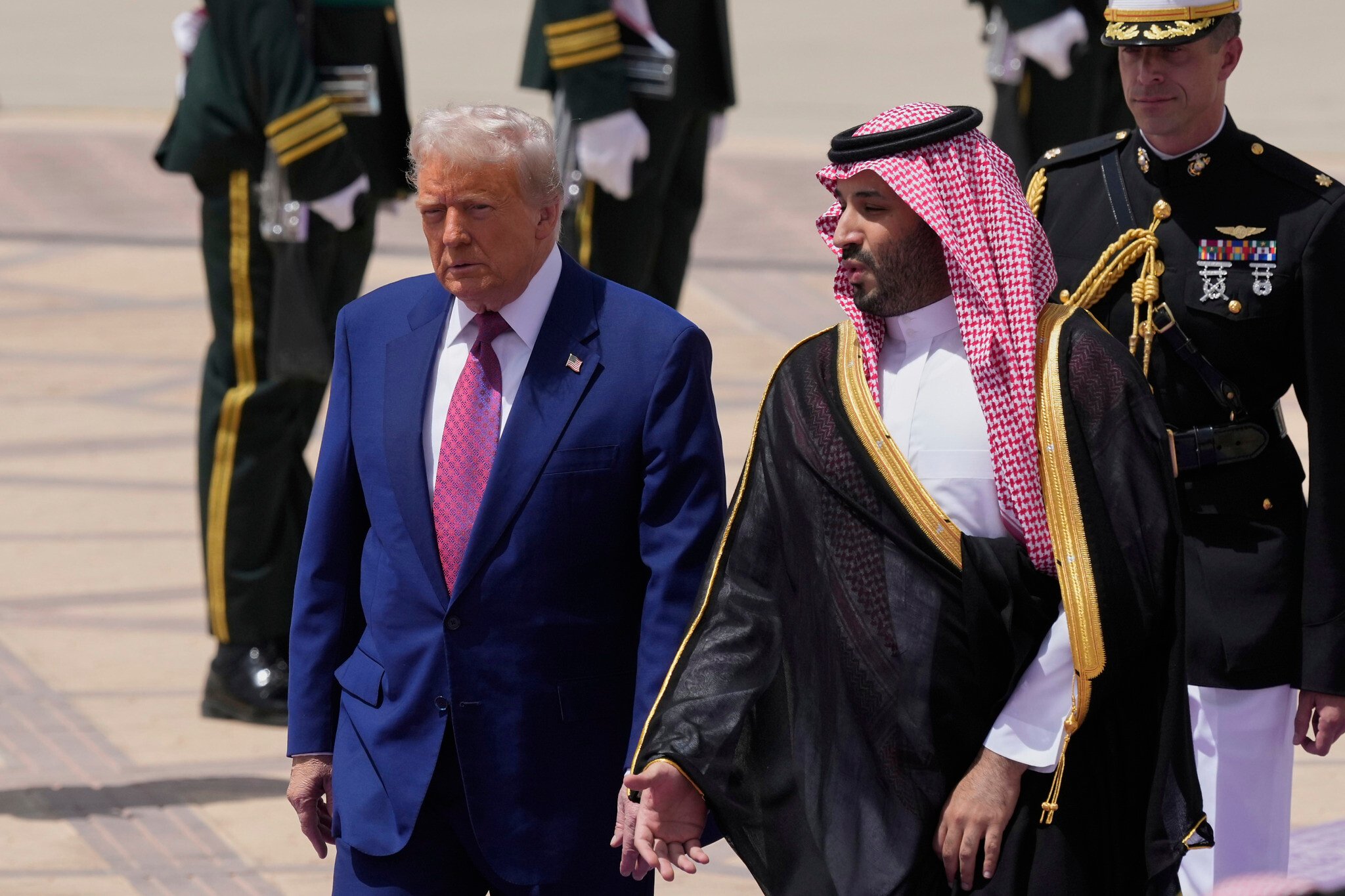
RIYADH, Saudi Arabia (AP) — US President Donald Trump opened his four-day Mideast trip on Tuesday by paying a visit to Saudi Arabia’s de facto ruler, Crown Prince Mohammed bin Salman, for talks on US efforts to dismantle Iran’s nuclear program, end the war in Gaza, hold down oil prices and more.
Bin Salman warmly greeted Trump as he stepped off Air Force One and kicked off his Middle East tour.
The two leaders then retreated to a grand hall at the Riyadh airport, where Trump and his aides were served traditional Arabic coffee by waiting attendants wearing ceremonial gun-belts.
The pomp began before Trump even landed. Royal Saudi Air Force F-15s provided an honorary escort for Air Force One as it approached the kingdom’s capital.
The crown prince will fete Trump with a formal dinner and Trump is slated to take part later Tuesday in a US-Saudi investment conference.
“When Saudis and Americans join forces, very good things happen — more often than not, great things happen,” Saudi Investment Minister Khalid al-Falih said.
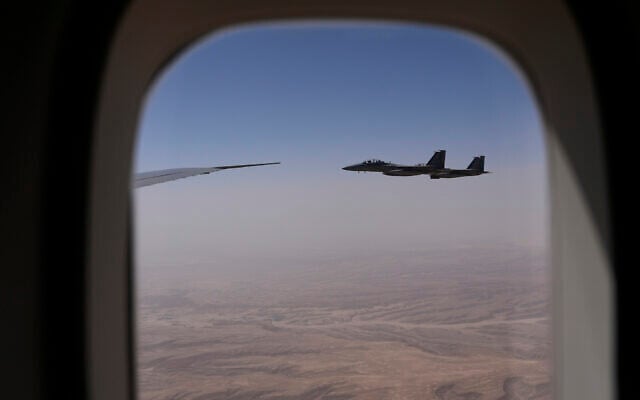
Saudi Arabia and fellow OPEC+ nations have already helped their cause with Trump early in his second term by stepping up oil production. Trump sees cheap energy as a key component to lowering costs and stemming inflation for Americans. The US president has also made the case that lower oil prices will hasten an end to Russia’s war on Ukraine.
But Saudi Arabia’s economy remains heavily dependent on oil, and the kingdom needs a fiscal break-even oil price of $96 to $98 a barrel to balance its budget. It’s questionable how long OPEC+, of which Saudi Arabia is the leading member, is willing to keep production elevated. The price of a barrel of Brent crude closed Monday at $64.77.
“One of the challenges for the Gulf states of lower oil prices is it doesn’t necessarily imperil economic diversification programs, but it certainly makes them harder,” said Jon Alterman, a senior Middle East analyst at the Center for Strategic and International Studies in Washington.
Trump picked the kingdom for his first stop because it has pledged to make big investments in the US, but Trump ended up traveling to Italy last month for Pope Francis’ funeral. Riyadh was the first overseas stop of his first term.
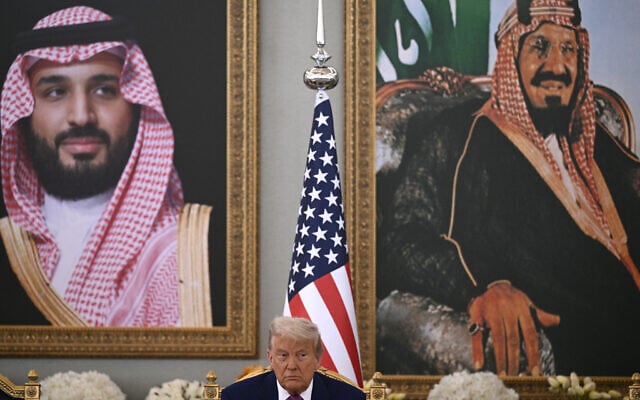
The three countries on the president’s itinerary — Saudi Arabia, Qatar and the United Arab Emirates — are all places where the Trump Organization, run by Trump’s two elder sons, is developing major real estate projects. They include a high-rise tower in Jeddah, a luxury hotel in Dubai and a golf course and villa complex in Qatar.
Trump is trying to demonstrate that his transactional strategy for international politics is paying dividends as he faces criticism from Democrats who say his global tariff war and approach to Russia’s war on Ukraine are isolating the United States from allies.
He’s expected to announce deals with the three wealthy countries that will touch on artificial intelligence, expanding energy cooperation and perhaps new arms sales to Saudi Arabia. The administration earlier this month announced initial approval to sell $3.5 billion worth of air-to-air missiles for Saudi Arabia’s fighter jets.
But Trump arrives in the Mideast at a moment when his top regional allies, Israel and Saudi Arabia, are far from neatly aligned with his approach.
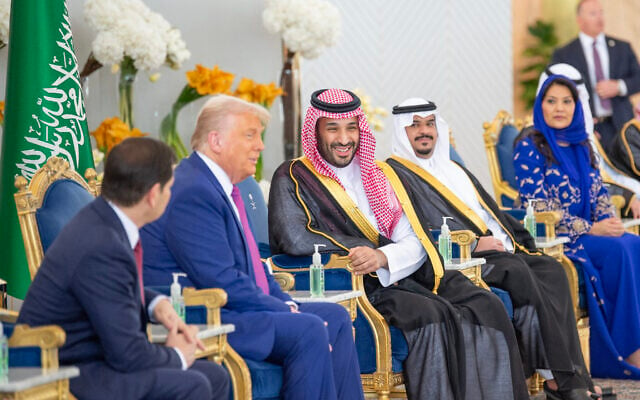
Ahead of the trip, Trump announced that the US was halting a nearly two-month US airstrike campaign against Yemen’s Houthis, saying the Iran-backed rebels have pledged to stop attacking ships along a vital global trade route.
The administration didn’t notify Israel — which the Houthis continue to target — of the agreement before Trump publicly announced it. It was the latest example of Trump leaving the Israelis in the dark about his administration’s negotiations with common adversaries.
In March, Prime Minister Benjamin Netanyahu wasn’t notified by the administration until after direct talks began with Hamas about the war in Gaza. And Netanyahu found out about the ongoing US nuclear talks with Iran only ahead of Trump announcing them during an Oval Office visit by the Israeli leader last month.
“Israel will defend itself by itself,” Netanyahu said last week following Trump’s Houthi truce announcement. “If others join us — our American friends — all the better.”
Israel was again left out of the loop as Trump negotiated the release of US-Israeli hostage soldier Edan Alexander, who had been held captive by Hamas for over 580 days after being captured during the October 7, 2023 attack.
Alexander returned to Israel on Monday, a day before Trump arrived in the region, and his release was the result of direct US-Hamas talks, in negotiations that sidelined Israeli officials, who were updated only after the deal was struck.
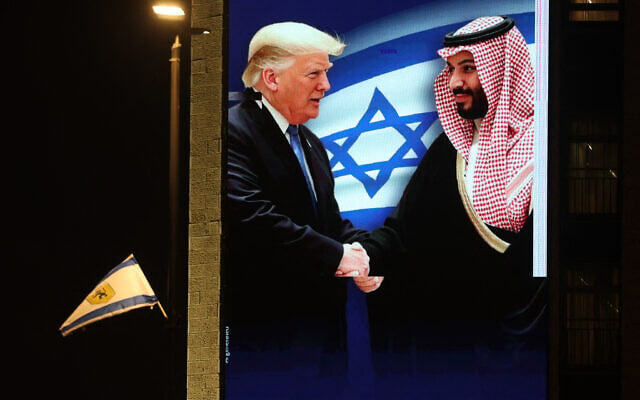
William Wechsler, senior director of the Rafik Hariri Center and Middle East Programs at the Atlantic Council, said Trump’s decision to skip Israel on his first Middle East visit is remarkable.
“The main message coming out of this, at least as the itinerary stands today, is that the governments of the Gulf… are in fact stronger friends to President Trump than the current government of Israel at this moment,” Wechsler said.
Trump, meanwhile, hopes to restart his first-term effort to normalize relations between the Middle East’s major powers, Israel and Saudi Arabia. Trump’s Abraham Accords effort led to Sudan, the UAE, Bahrain and Morocco agreeing to normalize relations with Israel.
But Riyadh has made clear that in exchange for normalization it wants US security guarantees, assistance with the kingdom’s nuclear program and progress on a pathway to Palestinian statehood. There seems to be scant hope for making headway on a Palestinian state with the Israel-Hamas war raging and Israel’s plans to significantly expand the IDF’s offensive operations in Gaza.
Bin Salman last week notably hosted Palestinian Authority Vice President Hussein Sheikh in Jeddah on Sheikh’s first foreign visit since assuming office in April.
Hussain Abdul-Hussain, a research fellow at the Foundation for Defense of Democracies, said the crown prince appeared to be subtly signaling to Trump that the kingdom needs to see progress on Palestinian statehood for the Saudis to begin seriously moving on a normalization deal with the Israelis.
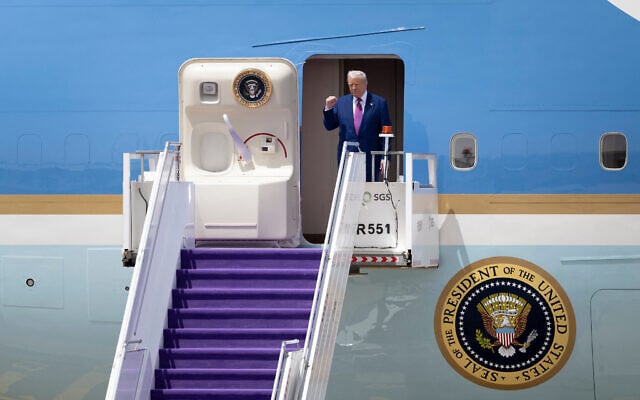
“Knowing how the Saudis telegraph their intentions, that’s a preemptive, ‘Don’t even think of asking us to show any goodwill toward normalization,’” Abdul-Hussain said.
